Image: Luther Konadu, Figure as Index, 2019. C-print, Photo: Courtesy of artist.
Luther Konadu: Particularly Tentative
Curated by Liz Ikiriko
The exhibition, Particularly Tentative, explores Luther Konadu’s interest in portrait photography as it relates to personal and collective beliefs of identity. He considers making portraits as a way to reflect on ideas with no expected outcome or goal. Luther Konadu considers using images to depict people as a way to question our belief in photographs. Instead of a quick snap of a person’s likeness and presenting it as a portrait, the portrait is a question that is never answered. Konadu considers the portrait as always shifting. The subject can change its meaning with every viewing. Unlike photographs used as tools of facts, proof or for “knowing” something about those depicted, the people in Konadu’s images will always appear in parts, unspecific, and unsettled.
Luther Konadu is an emerging artist, writer, and editor of the online publication, Public Parking.
Liz Ikiriko is a Nigerian Canadian artist and curator, originally from Regina (Treaty 4 lands). She holds an MFA in Criticism and Curatorial Practice from OCAD University. Ikiriko teaches photography at X University and is Assistant Curator at the Art Gallery of York University.
Artist ↑
Essay ↑
Where Nothing is Understood: Thoughts on Photography’s Permeable Existence
By Nya Lewis
Through repetition, layering, cutting, collaging and text, Luther Konadu's images are purposefully in constant metamorphosis, changing modes of looking into an exercise of telling and denying—expanding agency in seeing and being seen. The frames are active, continuous, yet untethered. The images are almost entirely removed from the context of the photographer’s intent. There is a sense of physicality within the compositions, a kinetic perspective. Archival gradient, intimately postured, frames almost abruptly aborted, the transformations made and unmade are tangible, a persistent vocality. Particularly Tentative, Konadu’s solo exhibition at Dunlop Art Gallery in Regina, Saskatchewan continues the artist's ongoing exploration of portraiture as it relates to self and discursively within a collective identity. Based in Winnipeg, Konadu is an award winning and nationally exhibited emerging visual artist, writer, and editor. Konadu positions photography as inconclusive, and a provisional facet of storytelling, meant to displace concrete knowing. The exhibition is a continuation of one body of work, appearing in parts, unspecified, and tentative.
I am fascinated by the ability of photography to create and enforce seemingly concrete ideas, normative conventions, expectations, or signifying practices of cultural bodies of knowledge. I say fascinating, but it is more like skepticism. I see the implications of surveillance and portraiture as relatives, a potential false truthmaking in the social construction of marginalized beings. How we understand and contextualize images in our daily lives, through the conventions of portraiture, costume, gesture, expression, pose, and background; these elements communicate information about a person or narrative. Beyond the observed static frame, how might we hold lens-based media accountable as the accomplice of fractured storytelling and as a vehicle in pursuit of subjectivity?
Consider the limitations of photography and its strategic role in governing our relationships to imagery. Historically, portraiture used to profile Blackness, and has left us vulnerable to an imposed fiction, near impossible to redeem from personal experience. I am positive the distrust stems from an understanding of the camera as a tool, and as a weapon with equal importance upon its subjects. When self-identifying African/ Black photographers yield a camera, it results in a type of lens appropriation or reclamation, a shift in the methodology of capturing Black bodies.
Luther Konadu’s solo exhibition Particularly Tentative reminds us of the intention of calling into question the use of the apparatus. As a student of ethnographies, I contend with the tension that documenting Black bodies generates, questioning what the camera cannot hold; relationality and uncertainty. Konadu presents frames that position viewers in relation to the permeability of the images, an invitation that demands active labour and the ability to think elsewhere. Thinking beyond the finality of the image, beyond the pre-conceived notions of Afro-diasporic experience, this precarity is repurposed as a form of affirmation, re-deploying vulnerability, making it generative—an effortful practice of looking. It complicates and re-orients the dynamic between camera, observer, and the life that unfolds in front of the lens. Easing my skepticism, I release the desire to resolve any expectations of the subject’s participation through coerced impressions. Here, fictionalized versions of Black life are resisted. Expanding as the images freely form, reform, and contextualize throughout the exhibition.
Perhaps the exhibition responds to photography's conflation with the truth, a speculation on how to deconstruct the permanence of lens-based work, offering instead work that extricates, and pieces back together, leaving space for what is not shown. Particularly Tentative images are at work, at play, in thought, in tandem, intuitive, and intentional, changing as the life captured forms, reforms, and progresses across time and space. We witness an artistic re-presentation of their portraits as a detailed study of collective presence. Photography as social practice, where narrative itself is ongoing and questioning. How might we hold the impossible possibility of nuance of an image?
Nya Lewis’ practice is a culmination of centuries of African resistance, love, questions, actions, study and embrace. The artist sees her practice as a continuation of a long lineage of work undertaken by Black artists, curators, writers, activists and thinkers who blaze(d) a trail of critical discourse surrounding the Black experience. Her work is multivalent in form and expression but is always driven by the reimagining and reclaiming of community. Lewis is an MFA candidate at OCAD University, the year-round programmer at the Vancouver Queer Film Festival, an independent curator currently serving as a PA at Or Gallery, and Guest curator at UBC Museum of Anthropology.
Installation Images ↑
Photos by Don Hall
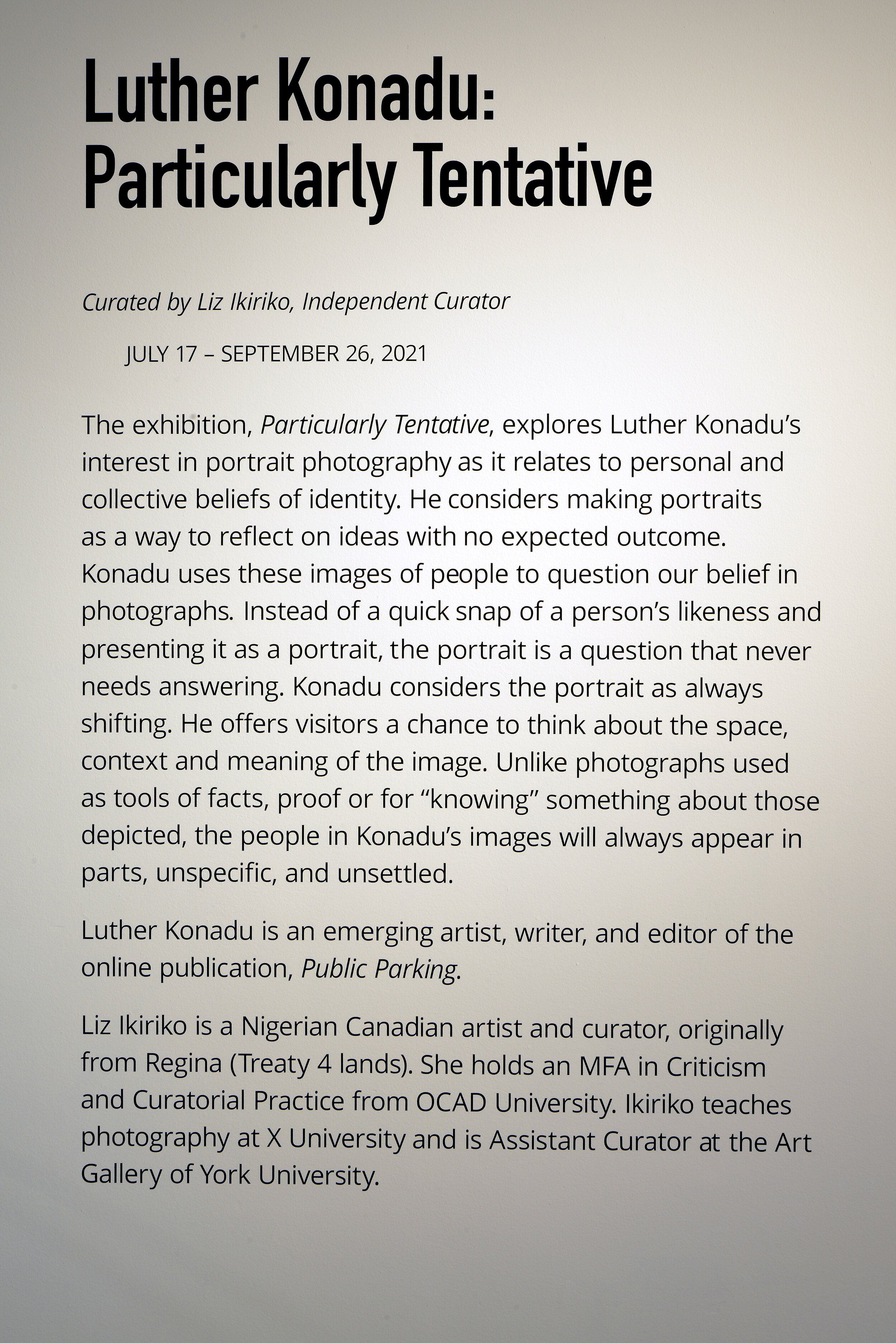
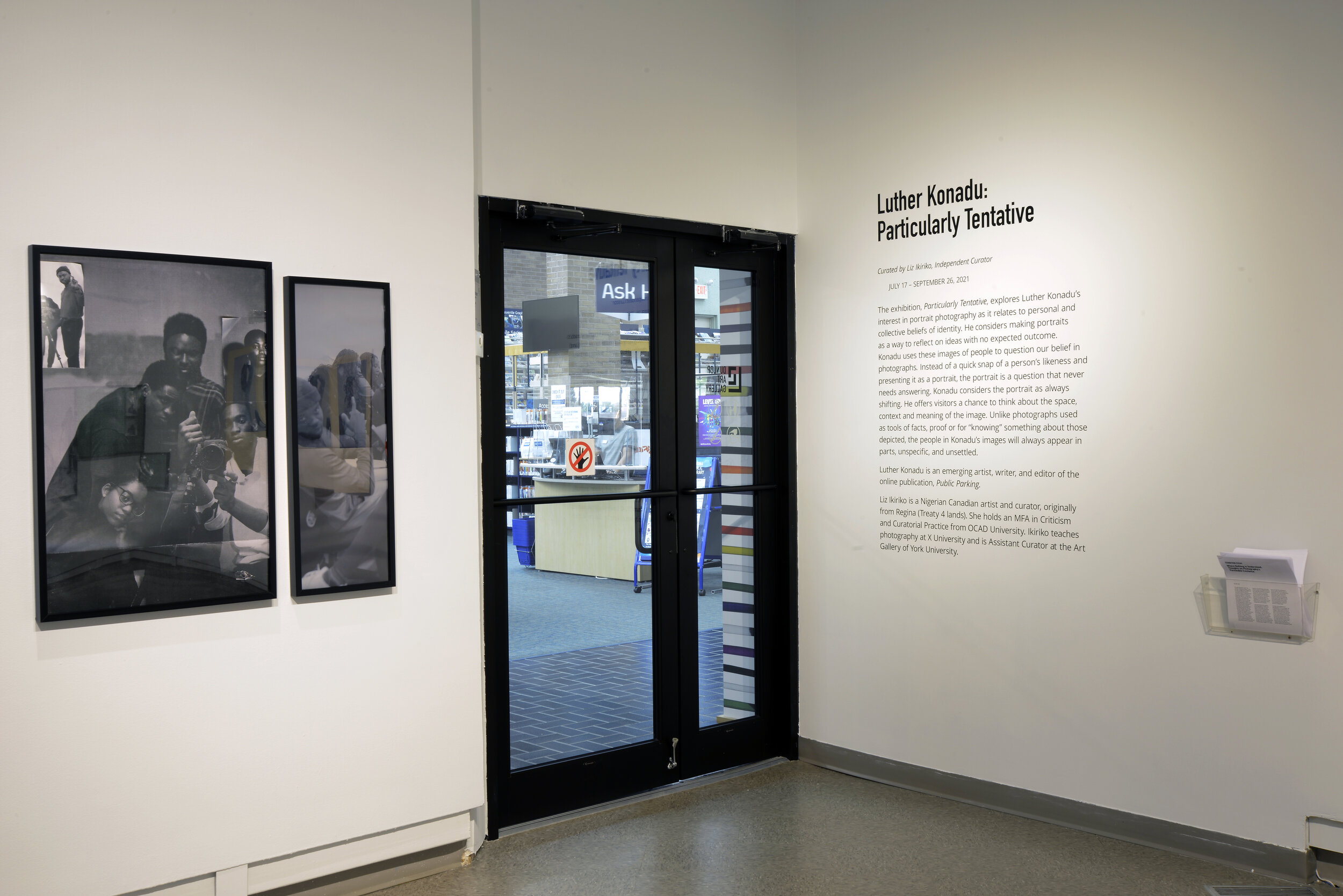
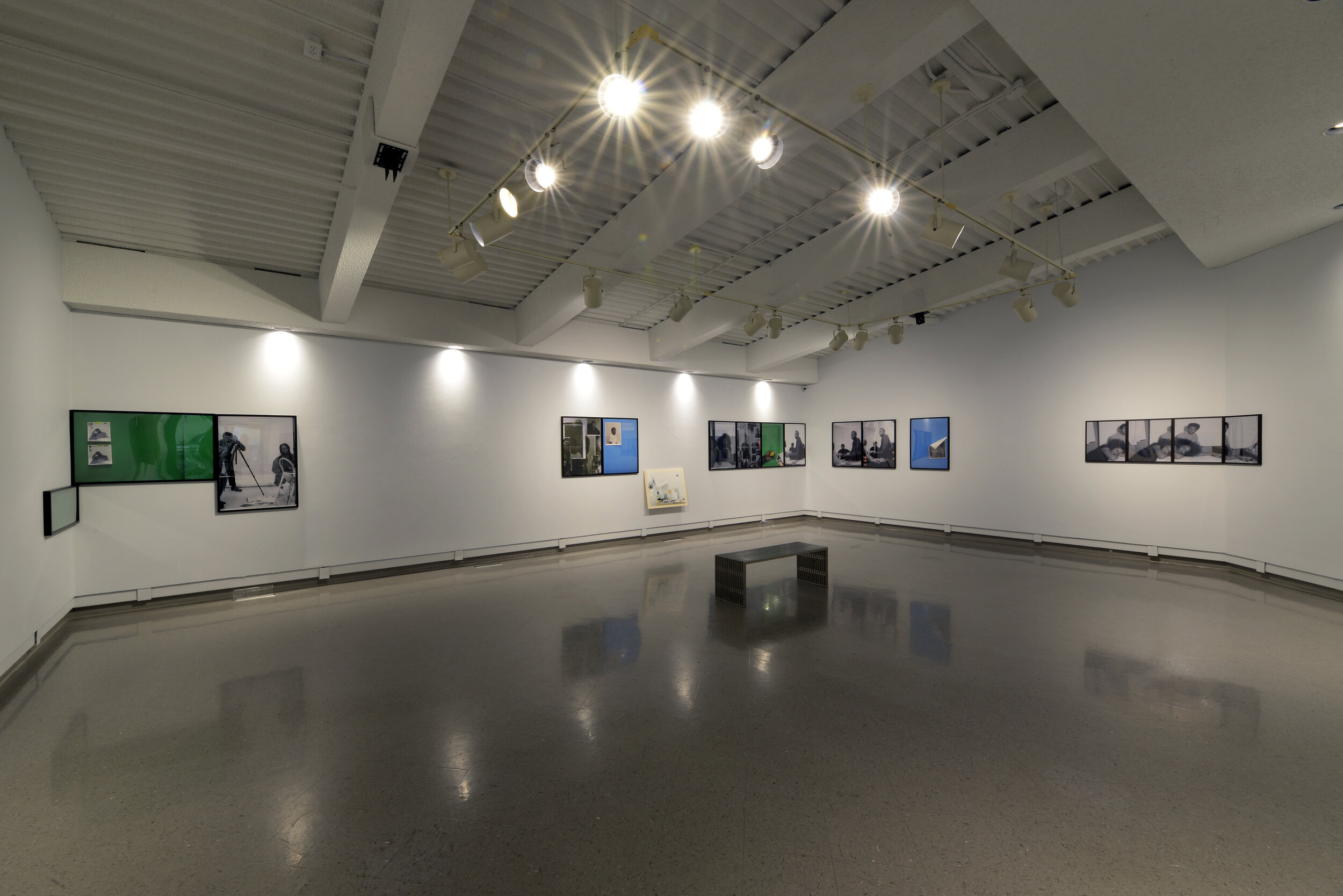
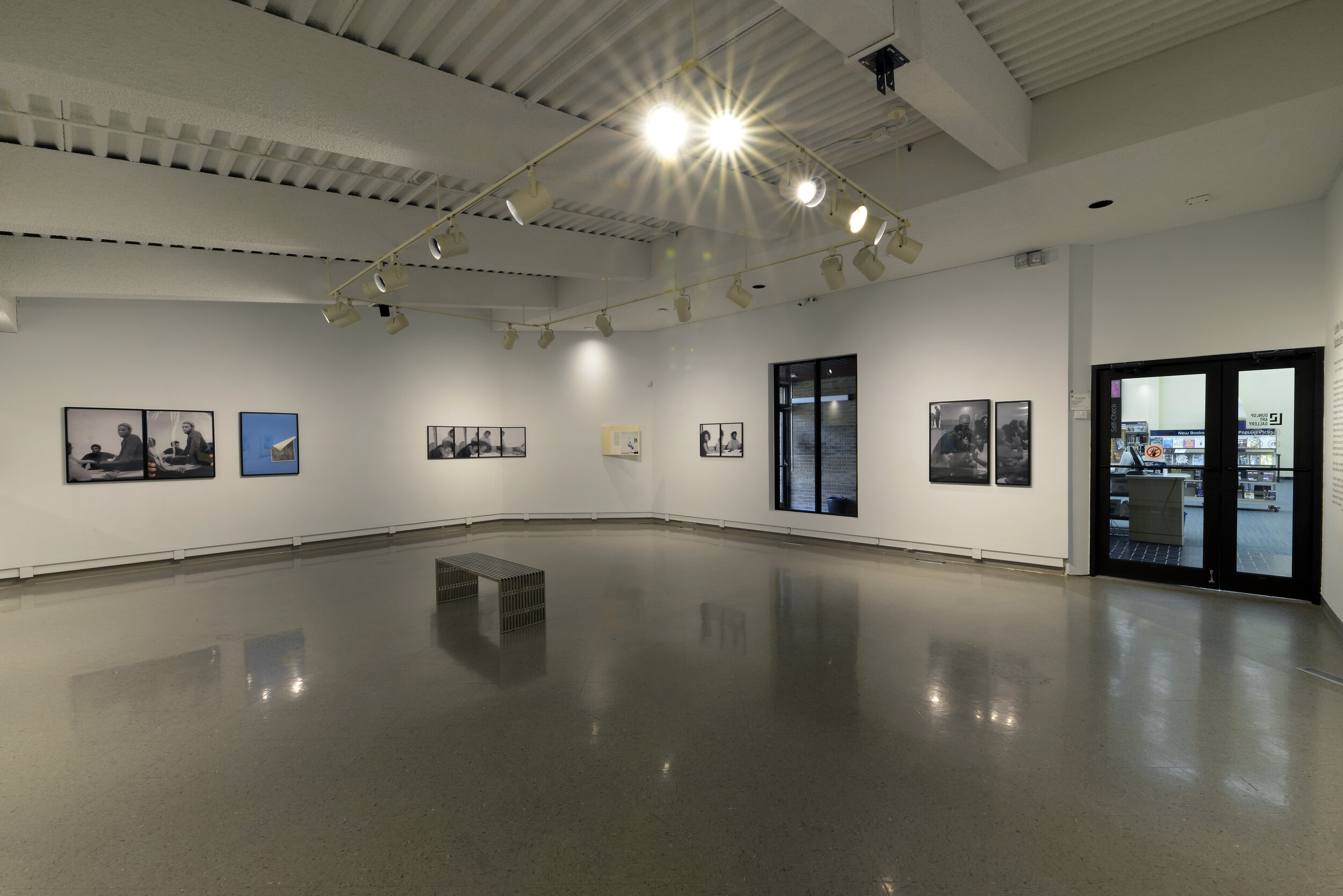
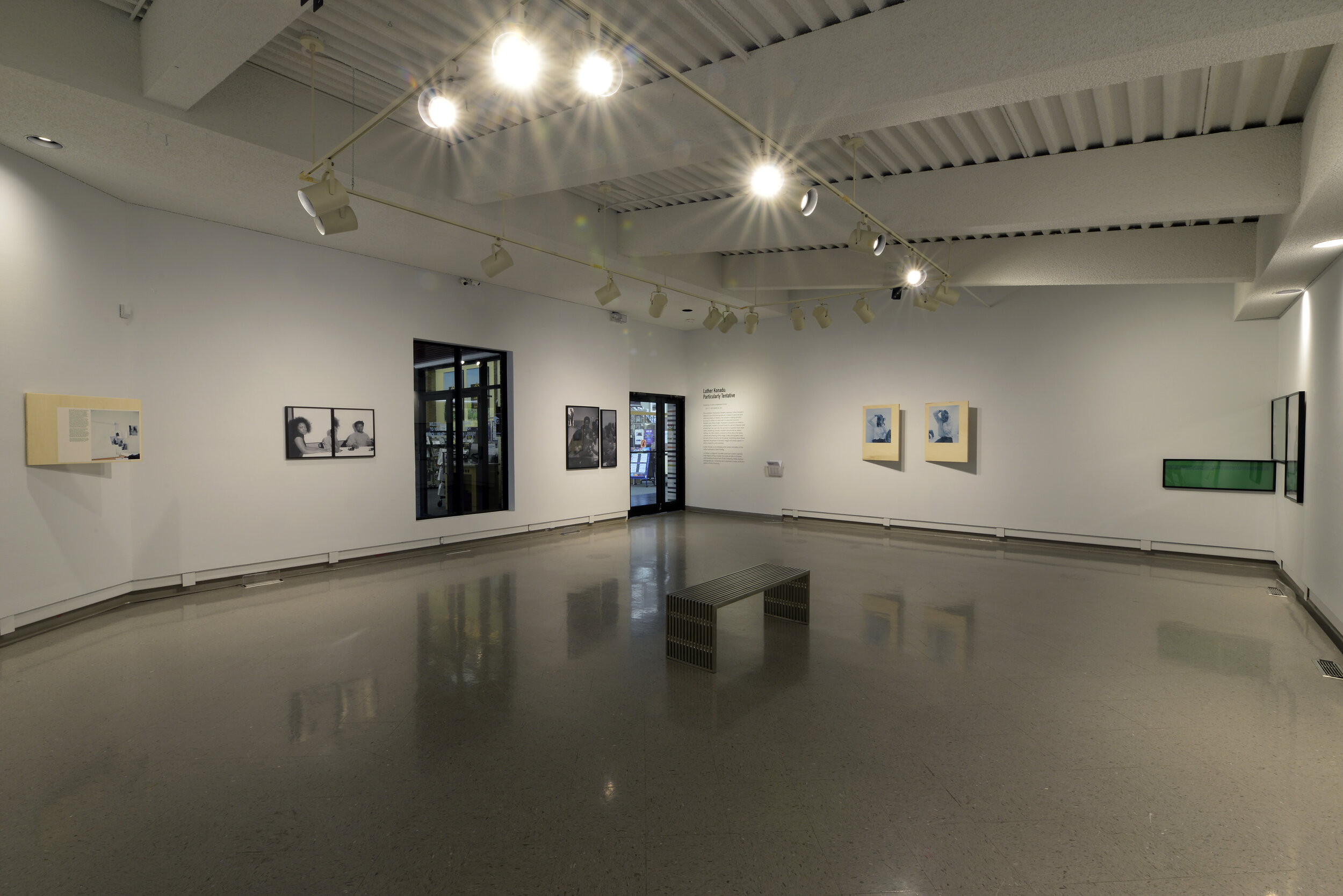
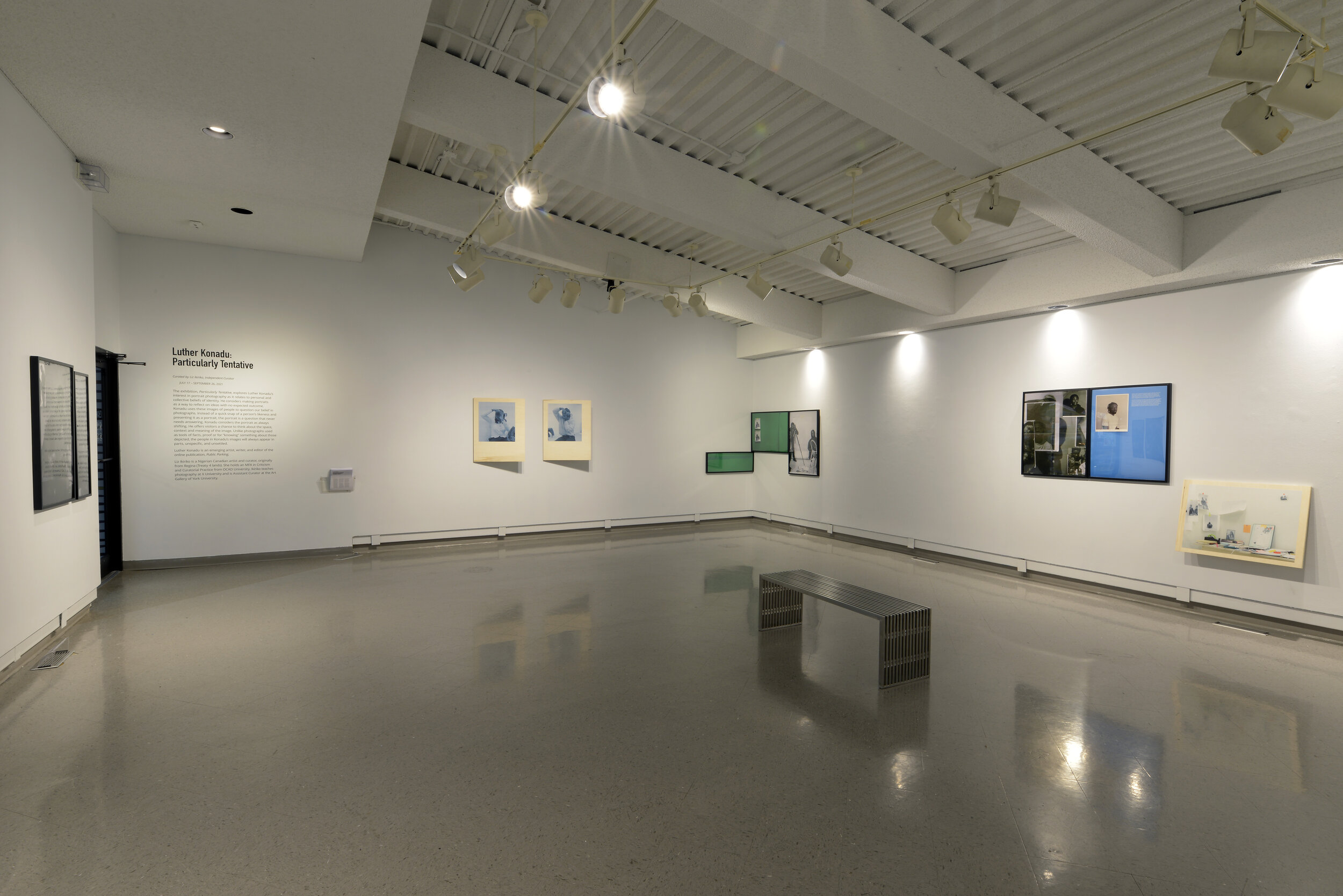
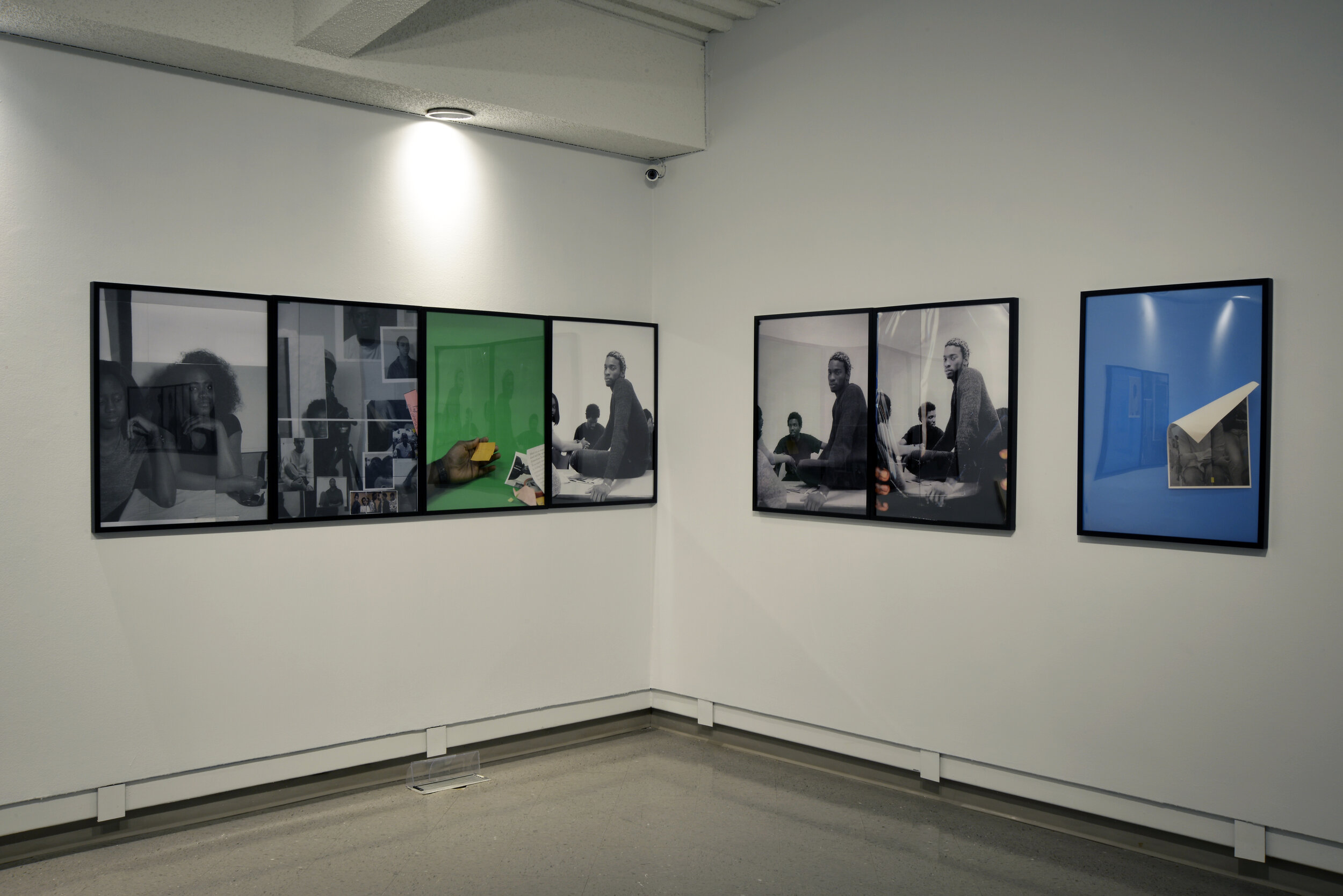
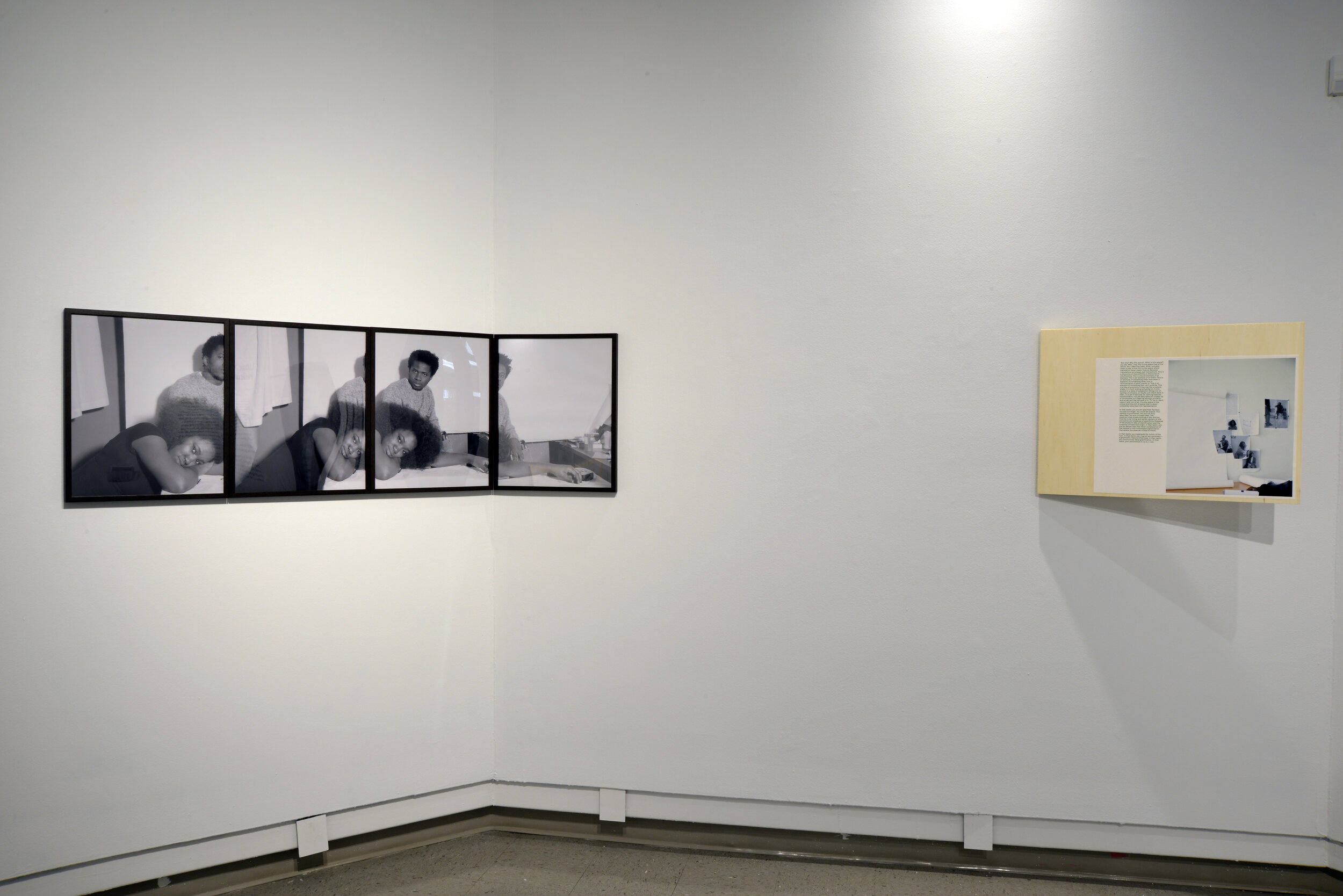
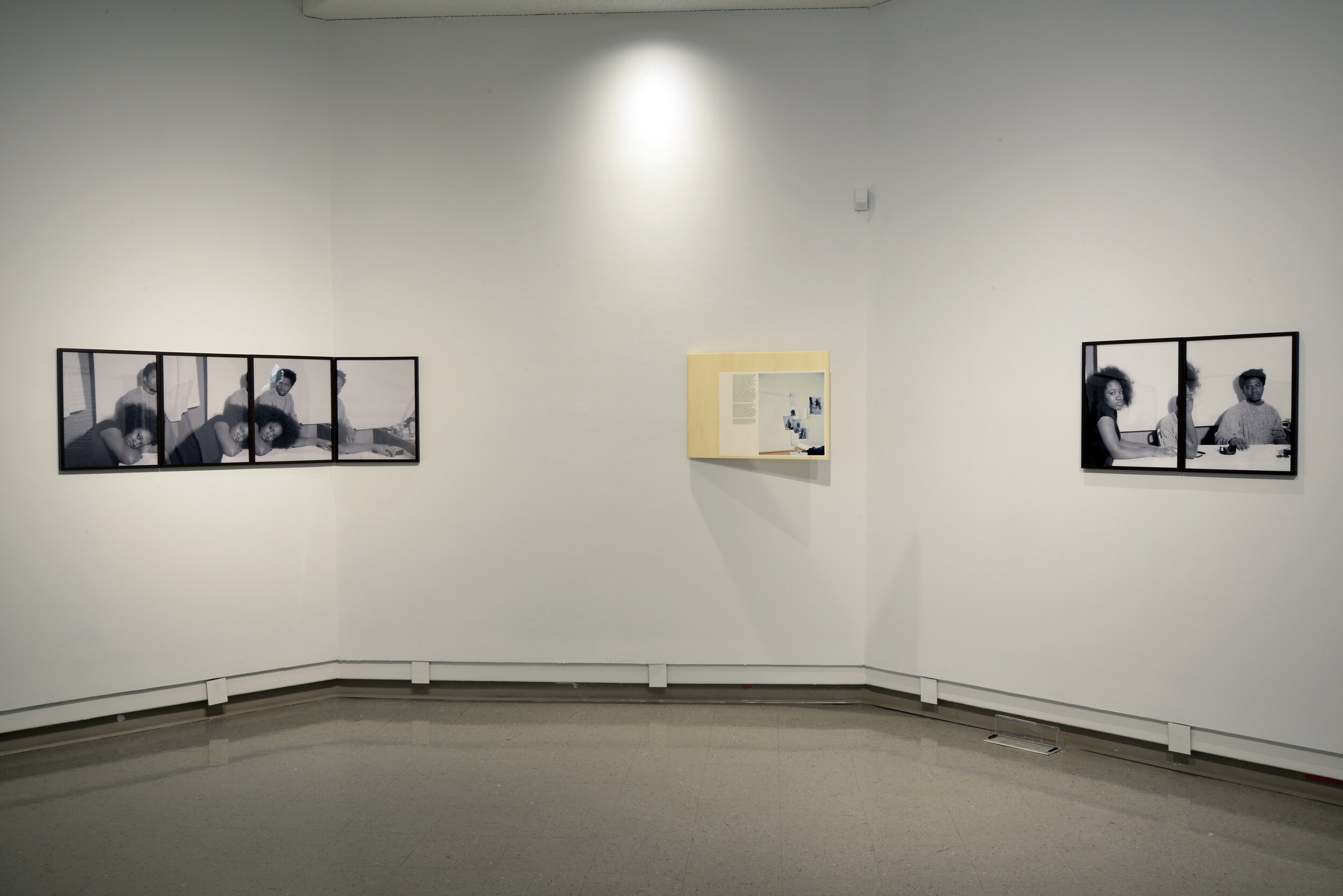
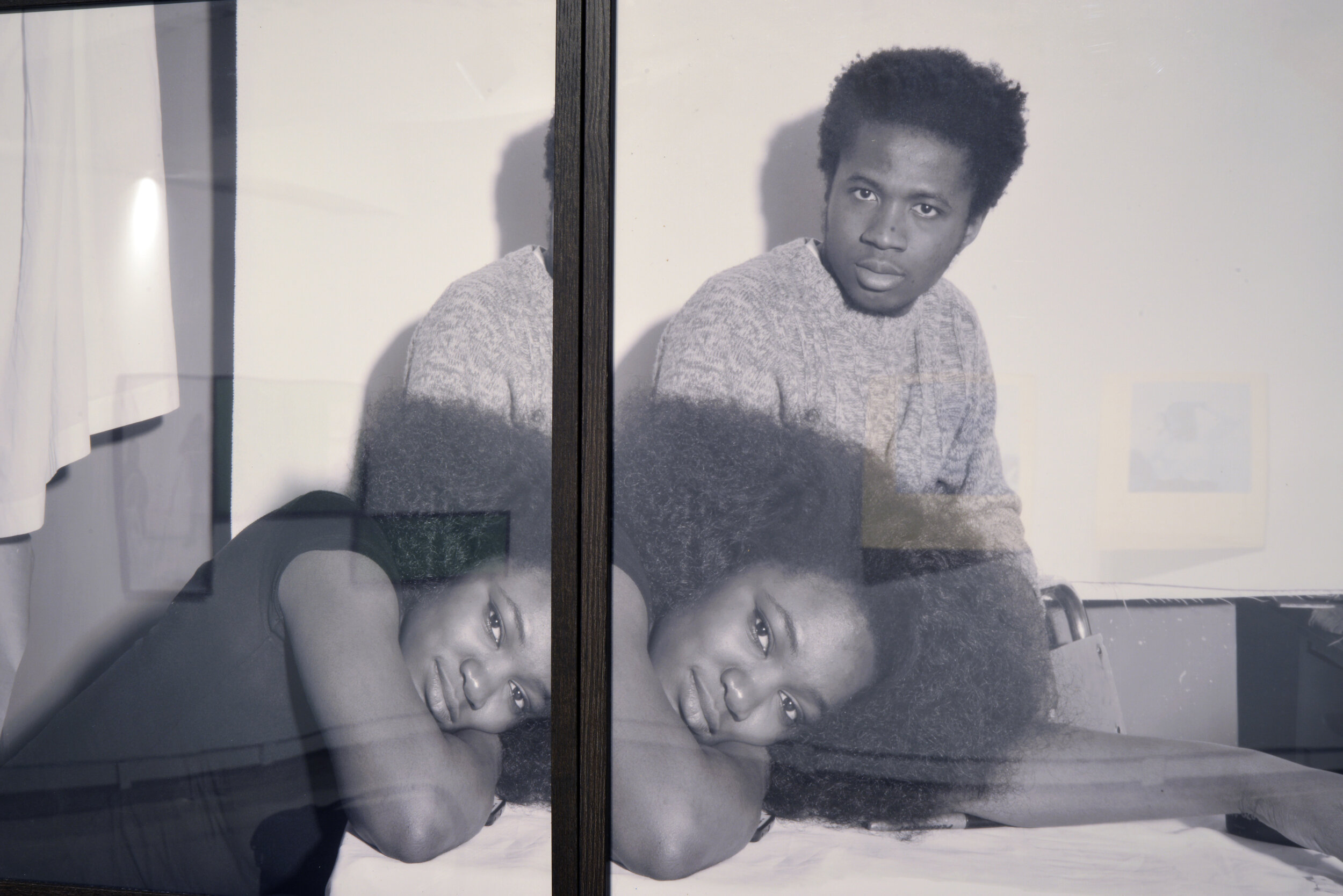
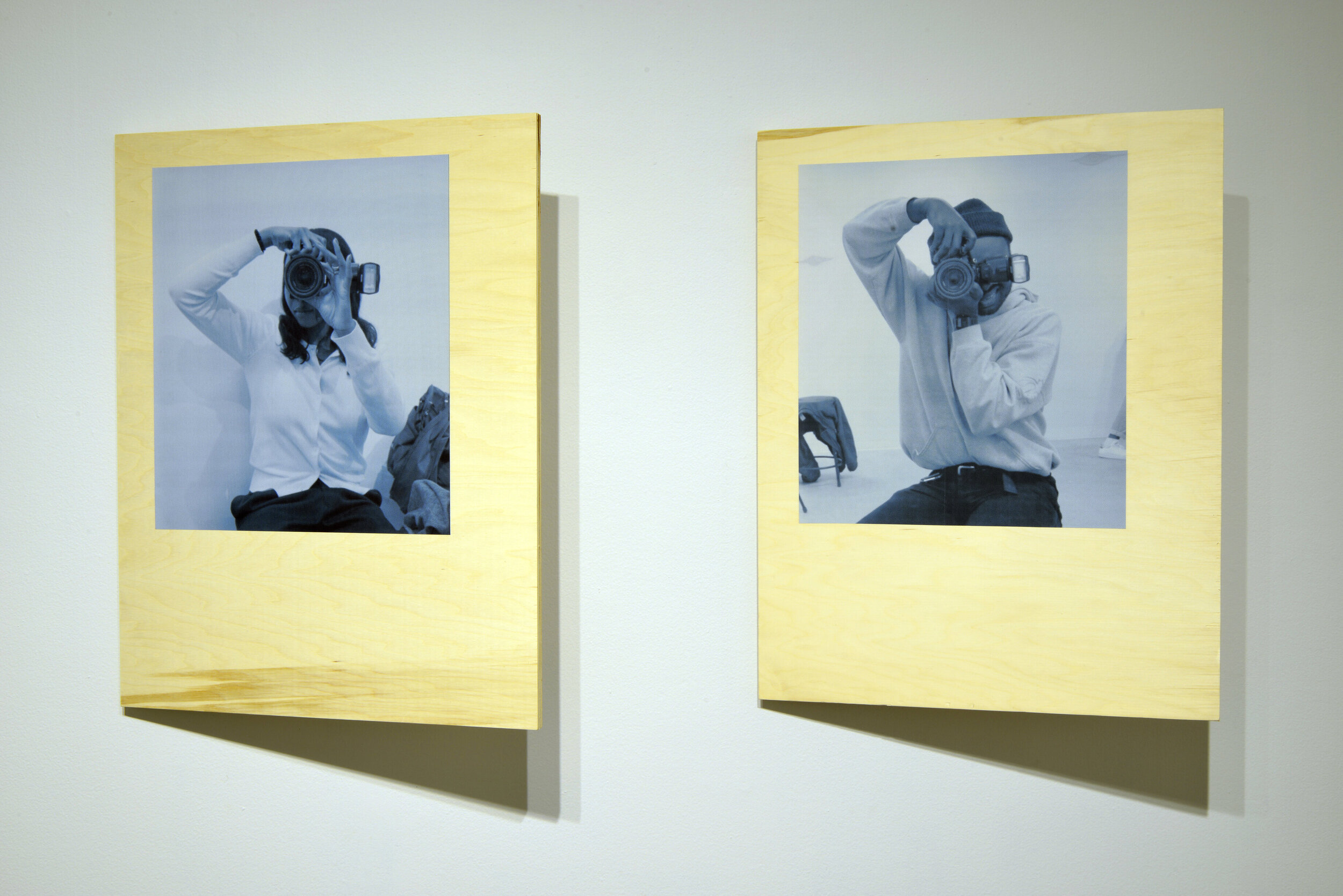
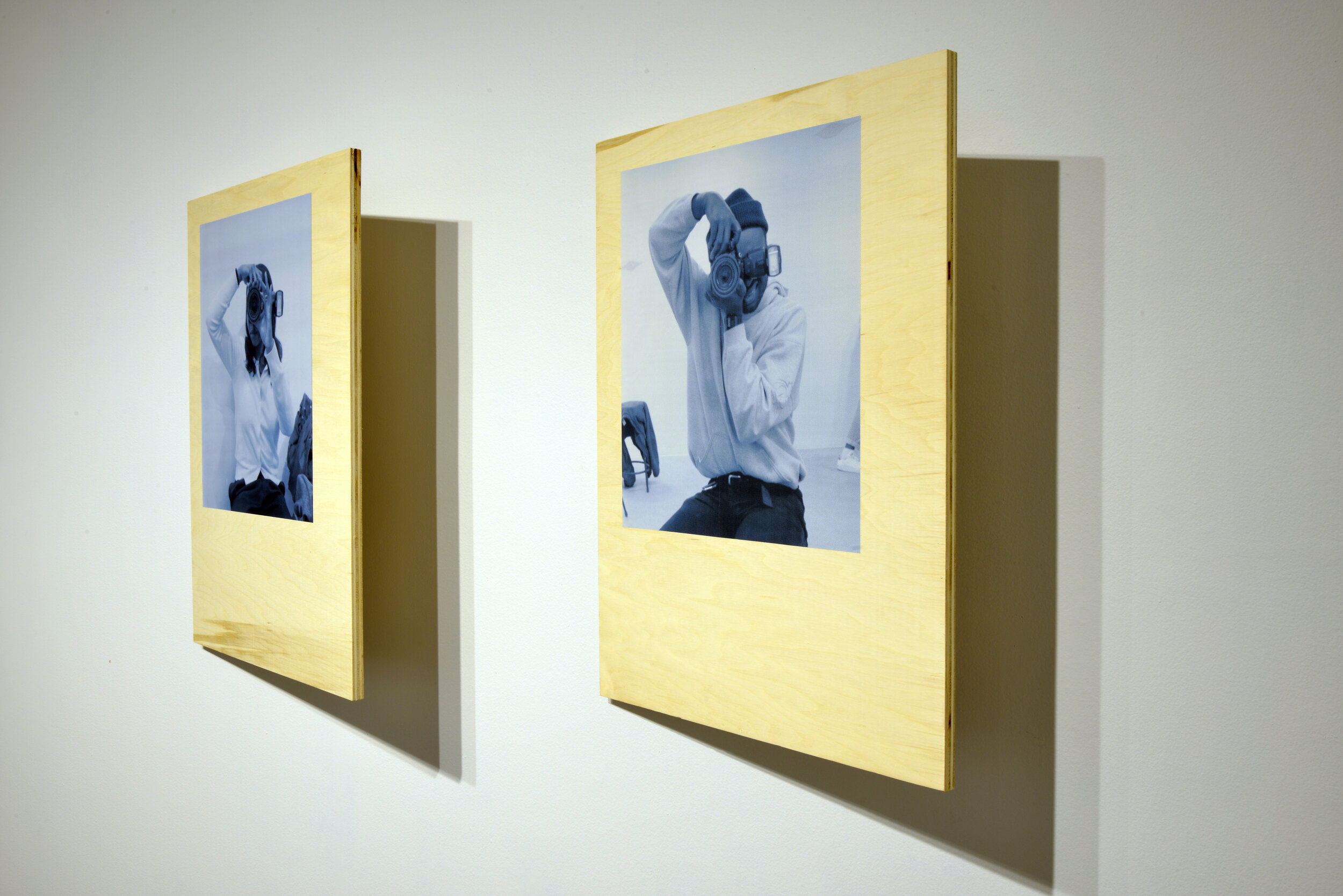
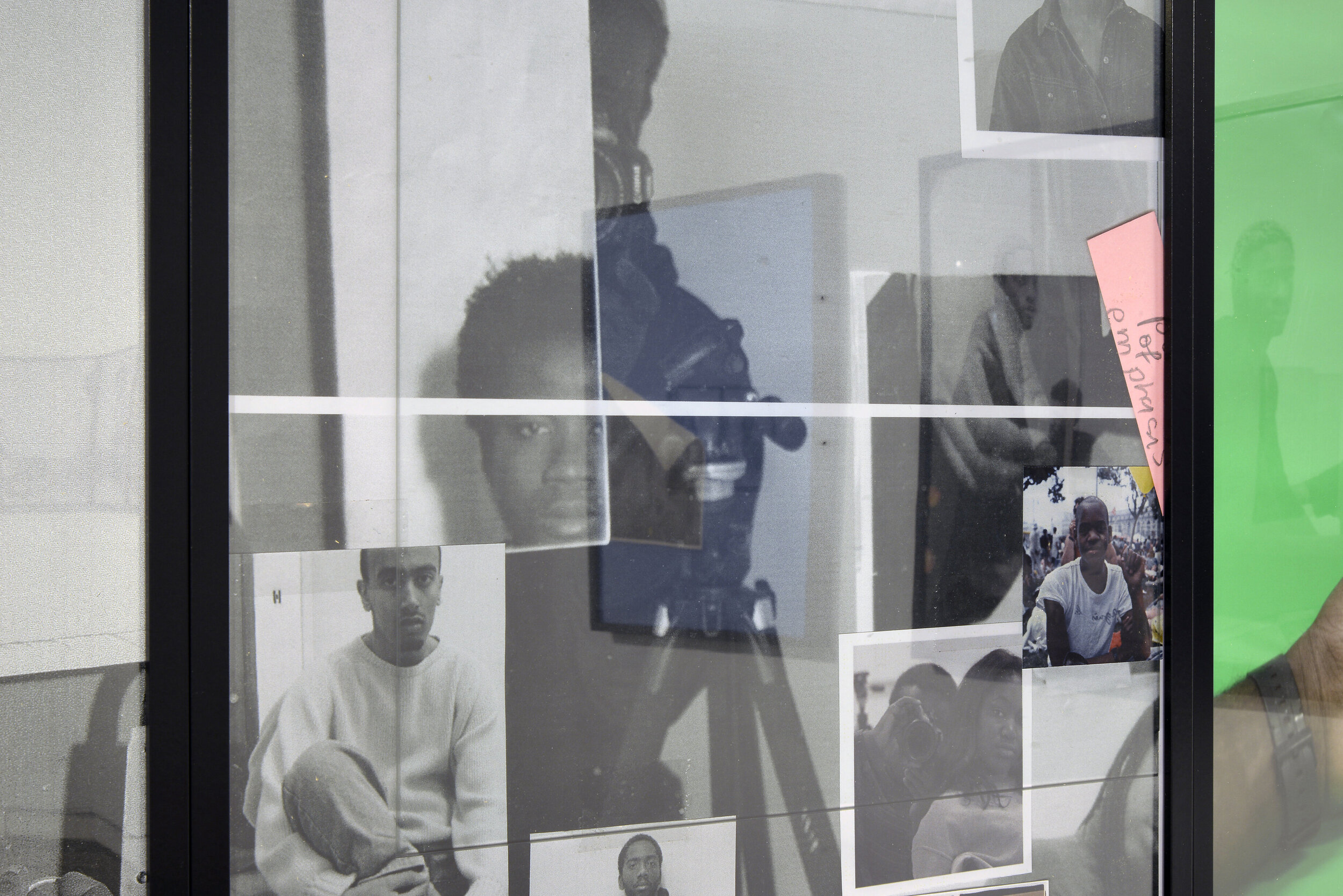
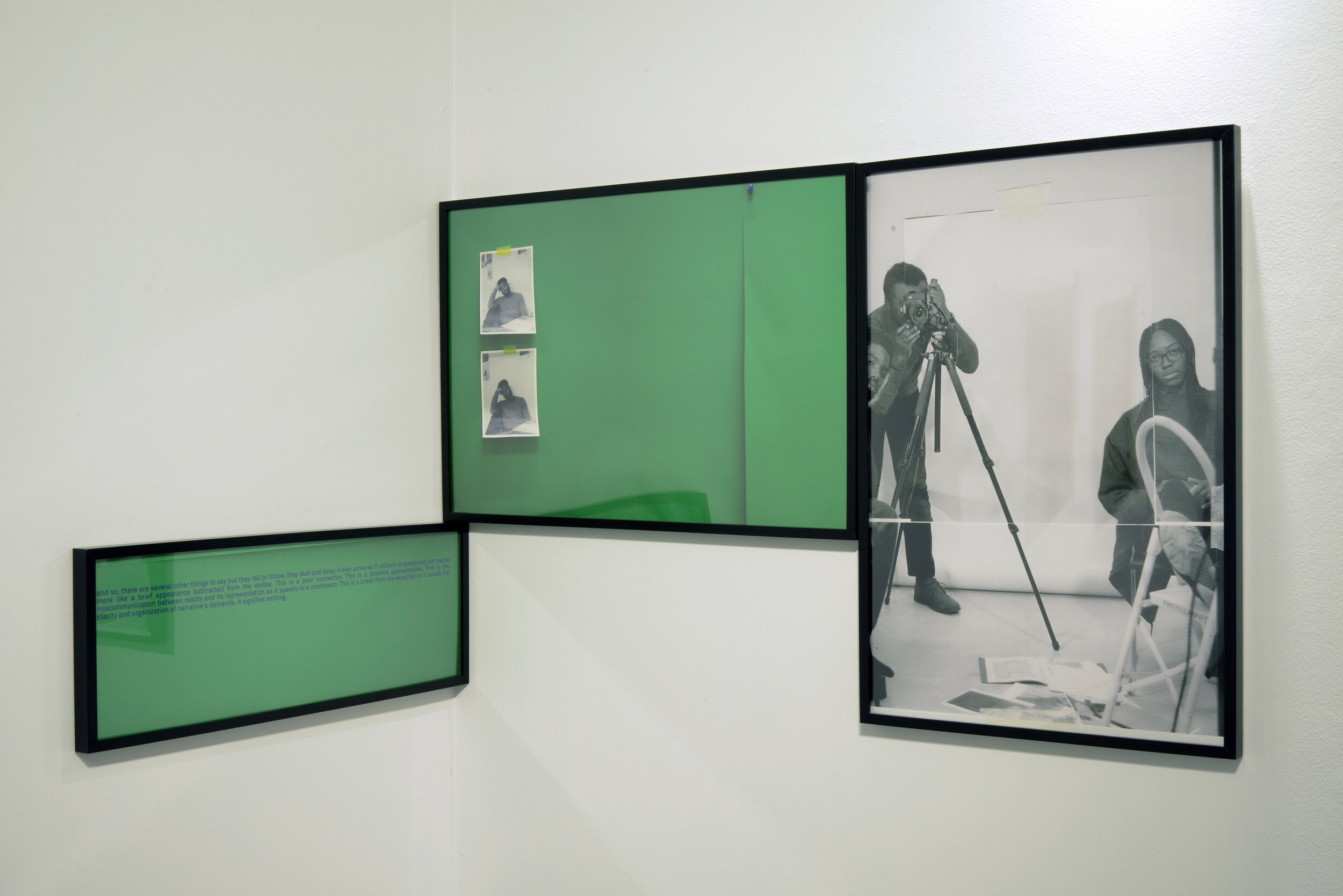
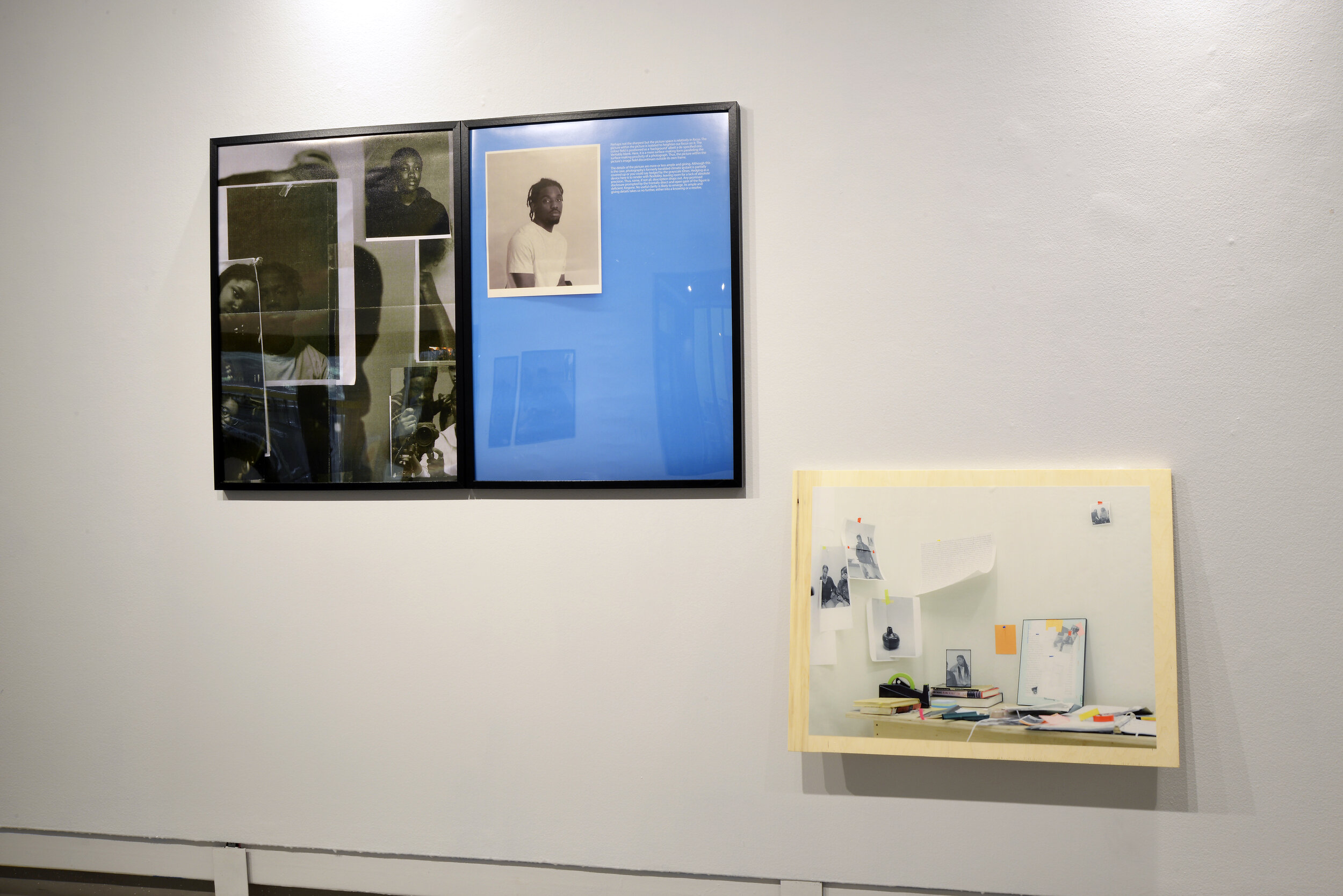
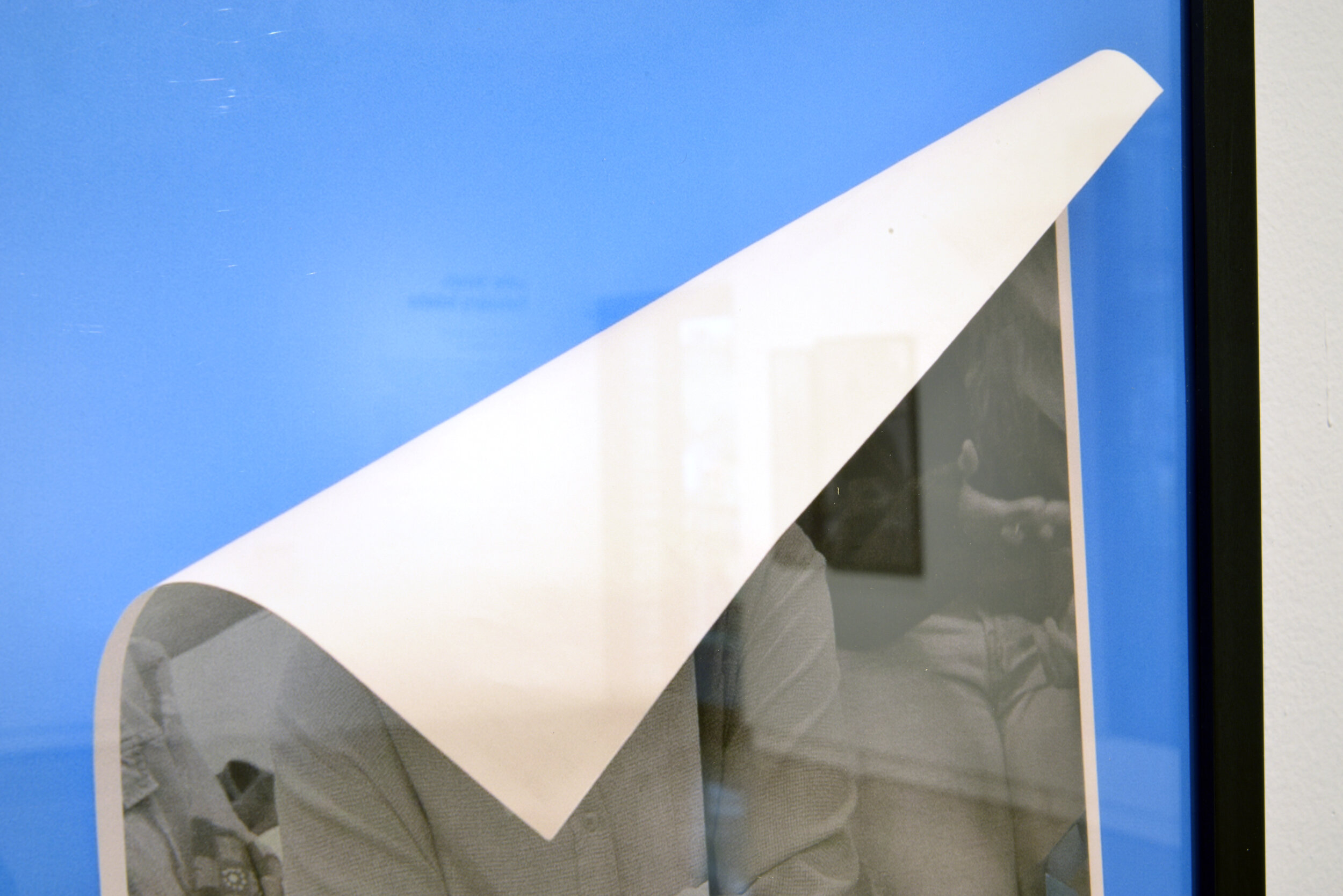
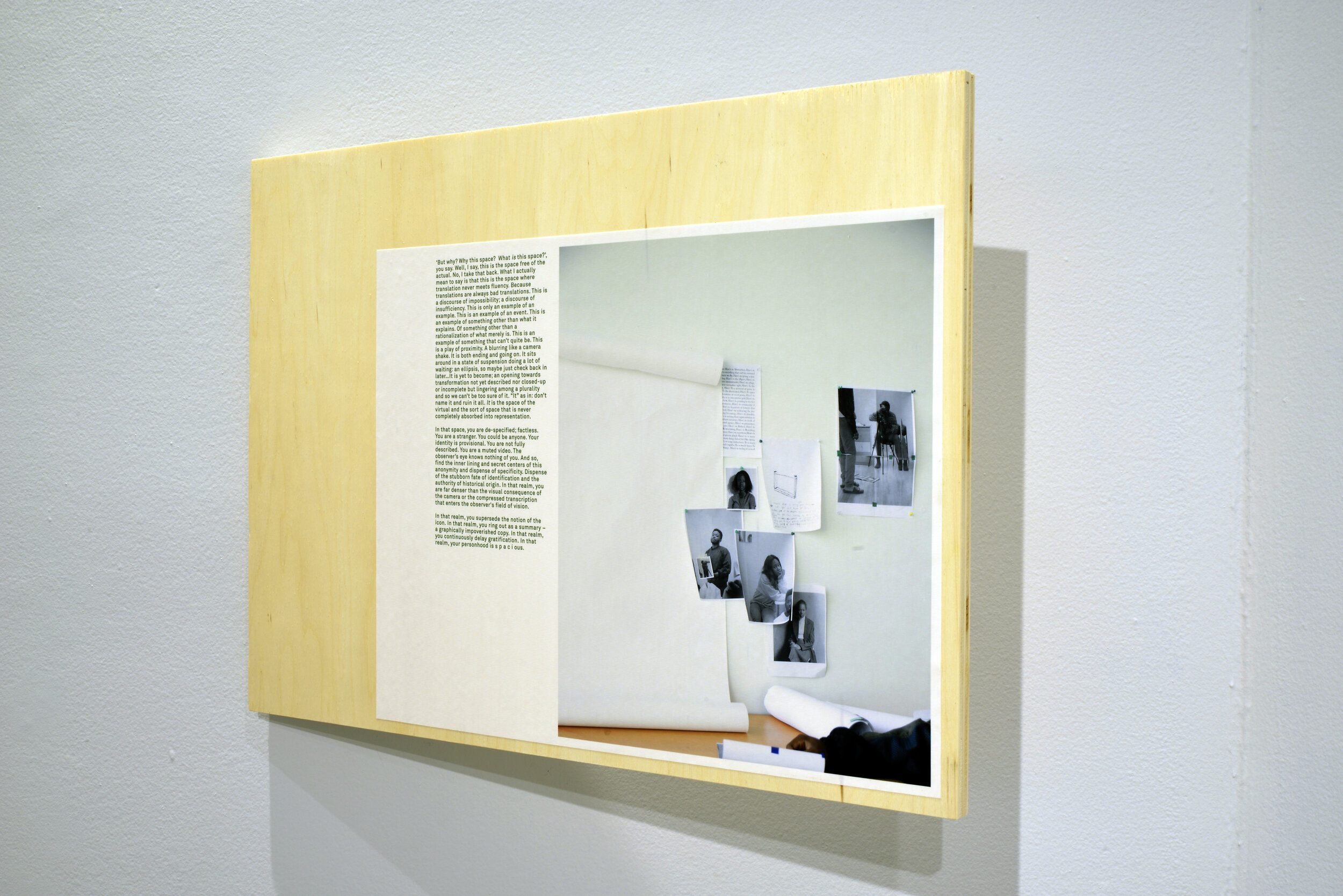
Media ↑
Review in Galleries West by Tak Pham.
Interview with Liz Ikiriko on CBC’s The Morning Edition - Sask with Stefani Langenegger.
Listen to the Curator’s Tour on Dunlop’s Instagram.

